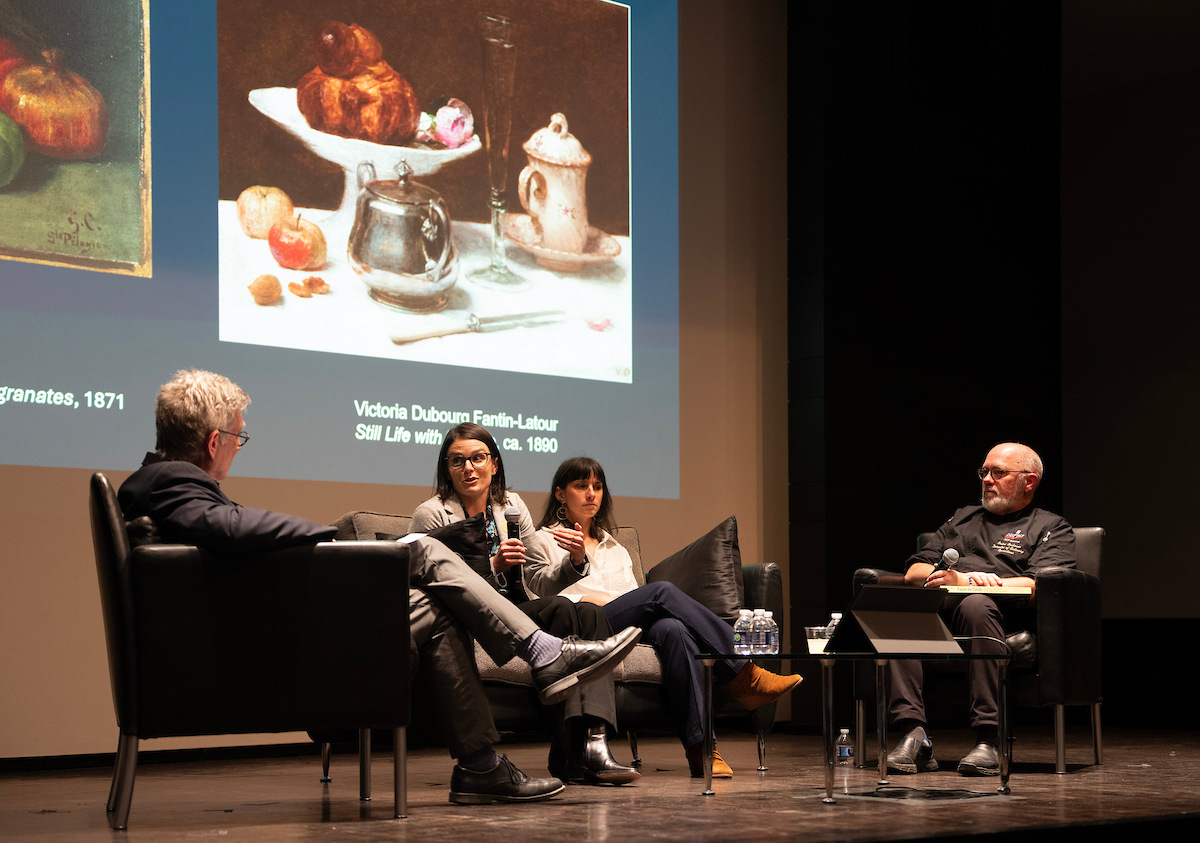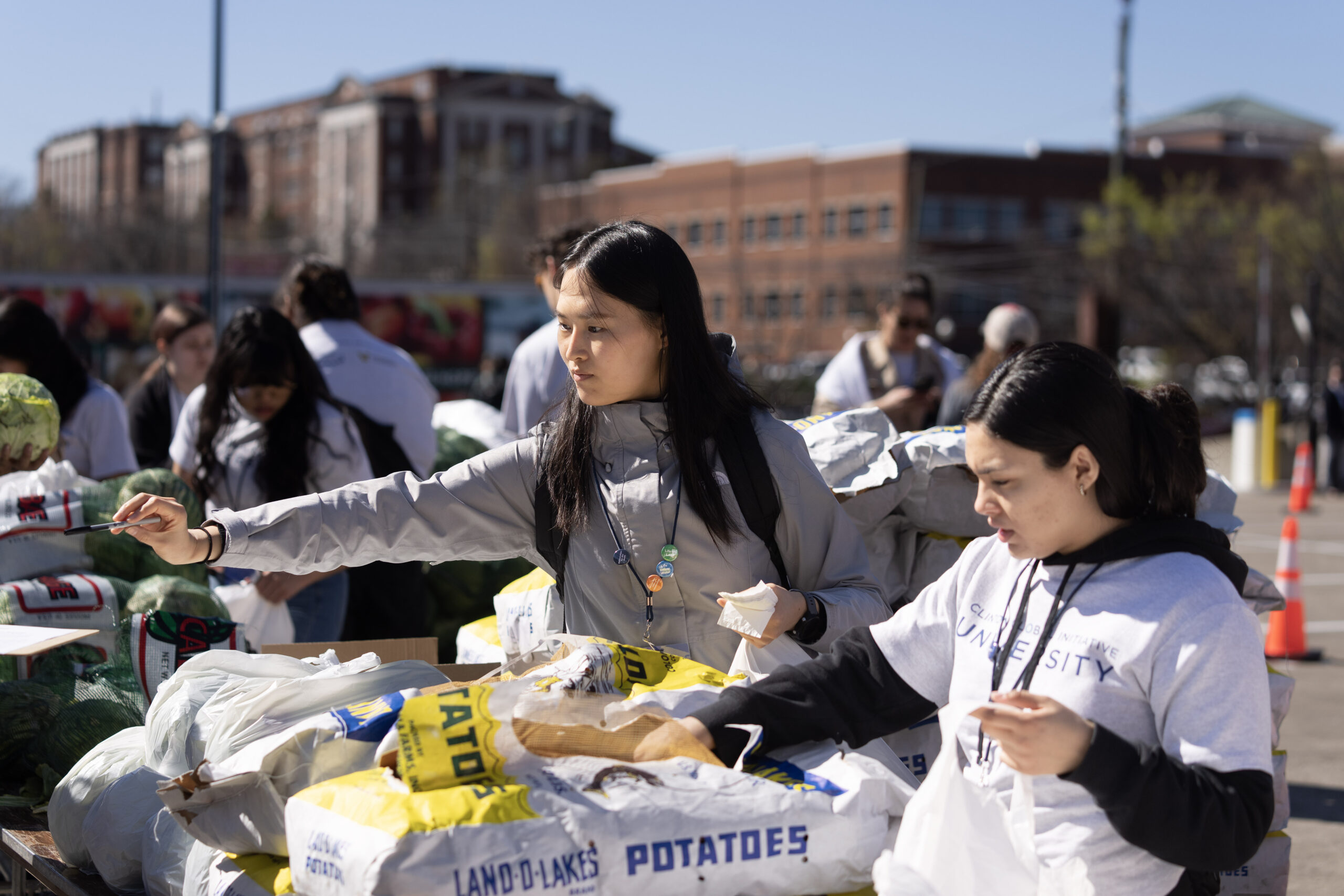
“Creating cuisines is about building community through agriculture and bridging the local with the global,” said Ted Fischer, Cornelius Vanderbilt Professor of Anthropology, during the opening session of “Food for Thought”—a free program presented by Vanderbilt University and the Frist Art Museum.
This series brings together Vanderbilt faculty, Frist curators and local leaders to explore cultural and societal issues through art. The Spring 2025 season focused on two Frist exhibitions: Farm to Table: Art, Food, and Identity in the Age of Impressionism and Tennessee Harvest.
Each session explored a distinct theme represented in the exhibits, from the cultural journeys of ingredients to the societal impacts of agricultural practices.
The Diaspora of Food
February’s event delved into cultural exchanges and the impactful journeys of ingredients across borders, highlighting the interconnectedness of global food traditions. Professor of Anthropology Edward (Ted) Fischer discussed how food moves around the world and mixes cultures. Associate Professor of History Brandon R. Byrd shared insights on how historical movements shaped what and how we eat today. Chef Shacuria Jackson, owner of Claremont Street Bao and Canvas highlighted the importance of place in the creation of a regional cuisine.

Food and Labor
In March, experts reflected on the hard work of farmers and the resilience required in agriculture. Assistant Professor of Anthropology Ari Caramanica shared insights on ancient farming strategies and how understanding them can inform our approaches today. Chef Brian Cochrane talked about how cultural cuisines have influenced kitchen practices worldwide, including Vanderbilt dining halls. Natalie Ashker Seevers, executive director of Tennessee Local Food shared ways Nashvillians can support local farmers through conscientious purchasing of local food and sustainability practices.
Food Justice in Nashville
During the April session, experts discussed fairness in the local food system and the importance of access to healthy food for all. Professor of Marketing Kelly L. Haws, explored how marketing impacts consumer choices. C.J. Sentell of the Nashville Food Project shared about his organization’s work with the local community, aiming to improve food access and reduce food insecurity across the city. Alice Randall, writer in residence of African American and diaspora studies, took the audience through a historical food journey of African American southern cuisine.
These discussions were facilitated by Frist Art Museum leadership: Executive Director Seth Feman, Chief Curator Mark Scala, and Community Engagement Director Shaun Giles, respectively, by month. Each session invited participants to think deeply about food and its role in our lives, illustrating the powerful combination of art and dialogue in generating new perspectives.
Future Programs
The “Food for Thought” series will continue in fall 2025. The program is a collaboration between Vanderbilt’s Division of Government and Community Relations, the Vice Provost for Arts, Libraries and Global Engagement and the Frist Art Museum. Visit the Community Relations website to learn more about future programming.
